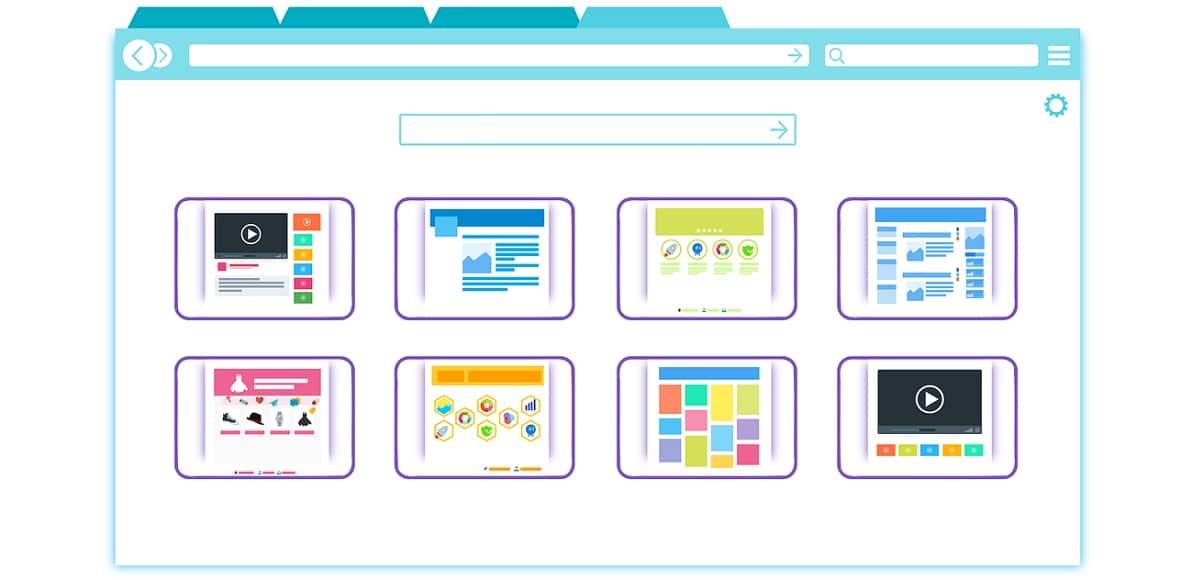From helping businesses increase their customer base to streamlining people’s day-to-day lives, the demand for feature-rich and quality mobile framework apps is at its peak. In fact, the application development market is projected to hit the $250 billion mark in the next couple of years, with an annual growth rate of 7.04%.
To meet the user demand in terms of quality, developers rely on mobile application frameworks to create them instead of developing them from scratch, which is time-consuming and costly.
This write-up discusses three popular frameworks, Laravel, Ionic, and PhoneGap, to help you know which framework best suits your needs. But first, let’s have a clear idea of what frameworks are and why we use them before we jump into which framework is better between the three options mentioned above.
What is a Mobile Development Framework?
Frameworks are software that developers use while building applications or websites. This helps in the development process, where the developers don’t have to code from scratch when developing a website or a mobile application.
As they come with elements such as debugging tools, programming interfaces, and compilers, you don’t have to learn complicated computer languages to develop an app. All you need is a solid knowledge of web-based programming languages, and are good to go.
Advantages of Using Frameworks
They offer so many benefits that developers never get tired of using them. The benefits include but are not limited to;
- Frameworks deliver predefined codebases and guidelines to the developers, and the primary purpose of using them is to provide the developer with a seamless developing experience.
- The development of websites and mobile applications strictly focuses on enhancing code quality and readability and making the development process more convenient for the developers.
- The framework also facilitates the debugging and maintenance processes of software.
- They provide the most efficient and effective ways of developing websites and mobile applications. In this case, advanced coding environments and features facilitate the whole development process.
- As developers get to use a predefined codebase, they can easily modify them, which leads to seamless bootstrapping.
- While using frameworks, developers do not need to write extensive lines of codes. This saves valuable time and accelerates the development process.
- Frameworks also provide security.
- They make maintenance and updates processes more efficient.
- Many code segments and functionalities inside the framework are tested multiple times, increasing reliability.
- Working on sophisticated technologies also becomes easier and cost-effective with relevant frameworks.
As you can tell from the information above, having zero knowledge about coding is not a problem anymore. All you need to know is how you want the end product to look like.
1. Laravel
Laravel is an open-source PHP framework designed for the development of web applications. The free-to-use framework provides an elegant syntax as well as a robust set of free tools for creating web applications.
Performing tasks such as templating HTML and routing can be pretty annoying when doing them by yourself. However, this framework handles these tasks pretty well.
Lavravel uses a Model-view-controller design point, which shows the shape of the data on which the application operates. This way, the developer can separate the application’s data layers, logic, and presentation. Here, you’ll get comprehensive and beginner-friendly documentation to get you started.
Because it runs on PHP and primarily focuses on data manipulation, Laravel is a server-side framework. It is considered one of the most helpful PHP web frameworks today.
Key framework Features
- Database support
- Routing
- Controllers
- Task scheduling
- Views
- Authentication and authorization
- Middleware
- Testing
Advantages of Laravel framework
Here are some of the reasons you should consider Laravel for your next project.
- Laravel is easy to use as it runs on the PHP framework.
- It provides advanced security features to the user. With a built-in authentication and authorization system, Laravel enhances a site’s security, protecting it from hackers.
- It supports server-side caching for better performance.
- Laravel boosts the site’s speed as it uses speed optimization techniques.
- Websites that use Laravel perform well under heavy traffic.
- It makes the maintenance of the websites simple.
- It provides a clean and elegant syntax to provide an intuitive codebase for developers, saving them time.
- It offers numerous online resources, tutorials and blogs to help you master the framework.
Disadvantages
- Compared to other software frameworks, Laravel is a bit slower, and users can face multiple problems while upgrading the software.
- It lacks a payment feature, forcing users to rely on framework libraries when including a payment method.
Overall, Laravel is ideal for seasoned web developers and MCV framework beginners looking to build modern, scalable, and maintenance-friendly web applications. It can provides dynamic web solutions for small scale business websites and full-scale business applications.
2. Ionic
Ionic is another open-source framework widely used by developers to build cross-platform mobile apps and top-quality desktop apps. It relies on web technologies such as CSS, HTML, and JavaScript to build high-quality mobile and progressive web applications.
It’s reliable when building iOS and Android apps, making it a well-known leader in the app development industry.
If you prefer a single codebase, this is the framework to go for. Here, you will get the libraries, tools, and abstractions to help abstract platform-specific details when writing codes using the web technologies mentioned above.
Key Features
- Pre-built UI components
- PWA (Progressive Web App)
- Mobile-optimized themes
- Angular integration
- Cross-platform compatibility
- Powerful CLI (Command-Line Interface)
- Testing and debugging tools
- Learning resources
- Cordoba and capacitor integration
Advantages of Ionic Framework
Some of the most appreciated advantages of using the Ionic framework are:
- Ionic framework provides cutting-edge web development experience to web application developers as it uses modern JavaScript and TypeScript.
- Mobile applications built using the Ionic framework have access to every API on every platform.
- Ionic offers over a hundred well-designed components using HTML, CSS, and JavaScript, making any functional app-building process fast and efficient.
- Ionic can also work seamlessly with other app development frameworks. It allows the developers to use the framework they are more comfortable with.
- It has multiple customizable UI controls.
- It also offers default themes and styles that are easy to apply.
- Ionic offers performance and optimization enhancements to curb any arising performance issues.
- With Cordova and capacitor integration, Ionic is able to seamlessly blend with native device features and APIs, including GPS, camera, contacts, etc.
- Through the PWA feature, Ionic allows you to build apps that can be installed on devices and function offline. These apps can be accessed from app stores or via web browsers.
- It hosts an active community of developers where you can get tutorials, resources, and extensive documentation.
Disadvantages
- Bothersome debugging of Ionic applications due to unclear error messages.
- Builds randomly crash for no reason.
- Instability of native plugins, which could also conflict with each other.
Overall, the Ionic framework is an excellent choice if you are experienced in web technologies.
3. PhoneGap
Also known as Apache Cardova, PhoneGap is an open-source framework commonly used for cross-platform application development. This user-friendly framework uses Web 3 technologies such as CSS3, HTML5, and JavaScript.
What’s more, you can wrap the web application in a native shell using the APIs and tools offered by PhoneGap. The framework allows developers to build applications that can perfectly utilize different mobile hardware features like GPS, Accelerometer, cameras, etc.
Originally developed by Nitobi Software and later acquired by Adobe Systems, PhoneGap supports multiple operating systems, including Android, iOS, Blackberry, and Windows. With this framework, the developer doesn’t have to restate the code when creating and deploying an application on multiple platforms.
Key Features
- Native device access
- Simple to work plugins
- Rapid prototyping
- Cloud-build services
Advantages of the PhoneGap Framework
- It’s capable of developing cross-platform applications.
- It allows you to reuse your existing web development codes.
- Allows for rapid development and prototyping of mobile applications since the code is shareable across multiple platforms.
- It can integrate with existing libraries, frameworks, and web technologies.
- This framework is better for business owners as apps can be developed fast and in a cost-effective manner.
- The PhoneGap framework is used to build powerful mobile applications that use properties of native resources of a device.
Disadvantages
- It’s not the ideal option if you want a robust native app because performance can be a concern.
- It might limit some APIs or native app features as opposed to fully native development.
Overall, PhoneGap is an excellent choice for developers looking to design a simple mobile app with a feel of a native application.
Final Word
When selecting the ideal mobile application framework, ensure it aligns with your development goals. Your choice will impact factors like speed, app performance, code maintainability, and more.
Laravel will write simple, synthetic, and pleasant-to-read codes, Ionic can build top-quality desktop and mobile apps, and PhoneGap can help design simple mobile apps with the feel of a native application.
It’s worth noting that Ionic requires you to buy a single license per end product, while PhoneGap and Laravel are absolutely free.
As you are completely aware of what you expect and require in the final product, you can use the information to choose the best framework according to your requirements. It will help you build your desired product in the most efficient way possible.



How to Turn Your Blog Into a Money-Making Machine (Even If You’re Just Starting)
How to Set Role-Based Pricing in WooCommerce (Wholesale & Retail)